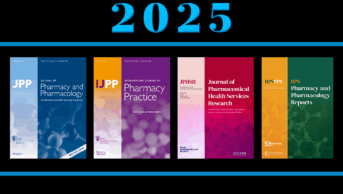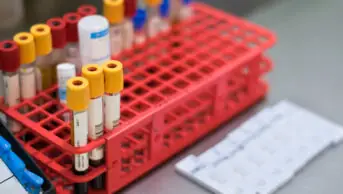
Shutterstock.com
Around 30 pharmacist independent prescribers (IPs) are taking part in a pilot scheme to examine the value of protected learning time.
The 12-month study, run by Cardiff Unit for Research and Evaluation in Medical and Dental Education (CUREMeDE), and funded by Health Education and Improvement Wales, is taking place across two health boards in Wales.
It is phase two of a pilot scheme exploring protected learning for community pharmacists. Phase one examined three different models of protected development for community pharmacists: self-directed continued professional development; in-practice support with a dedicated mentor; and credit-bearing qualifications.
The aim of the research is to assess how well pharmacy professionals in community settings are supported in acquiring additional knowledge and skills for service provision.
An evaluation of phase one of the pilot scheme, published in October 2022, found that many of the pharmacists accessing protected learning time were IPs, so the second phase focused solely on IPs.
Sophie Bartlett, research associate at CUREMeDE, told The Pharmaceutical Journal that phase one of the pilot scheme found that “many pharmacists accessing protected time were IPs and had used the time to expand their scope of practice and provide additional services within their pharmacy”.
She added: “The purpose of this second phase of the protected time programme is to provide protected time to IP pharmacists to support and/or expand their scope of practice in community pharmacy settings. The IP pharmacists will be able to access up to five days of protected time and decide how this time is utilised.
“We are exploring how IP pharmacists make use of their five days of protected time and its impact on their scope of practice and confidence in providing IP services. To capture this, we are gathering feedback from the IP pharmacists and their employers.”
The study is due to conclude at the end of January 2024 and an evaluation of the second phase of the pilot is due to be published in March 2024.
Alwyn Fortune, policy lead for Wales at the Royal Pharmaceutical Society (RPS), said: “With the ever-expanding clinical role of pharmacists and the rapid increase in pharmacist prescribers to support patients and the wider NHS priorities in Wales, having access to protected learning time to support this development has never been more important.
“We’re therefore pleased that the second phase of this pilot is focused on supporting prescribing roles and look forward to seeing the results, which should inform an effective infrastructure for protected learning time to be delivered at pace.”
He added that the RPS has “long campaigned that all pharmacists must have protected learning time to undertake educational and research activities, to develop their self and others for the benefits of patients and the wider NHS”.
- This article was updated on 23 January 2024 to correct inaccuracies in details about the pilot scheme


